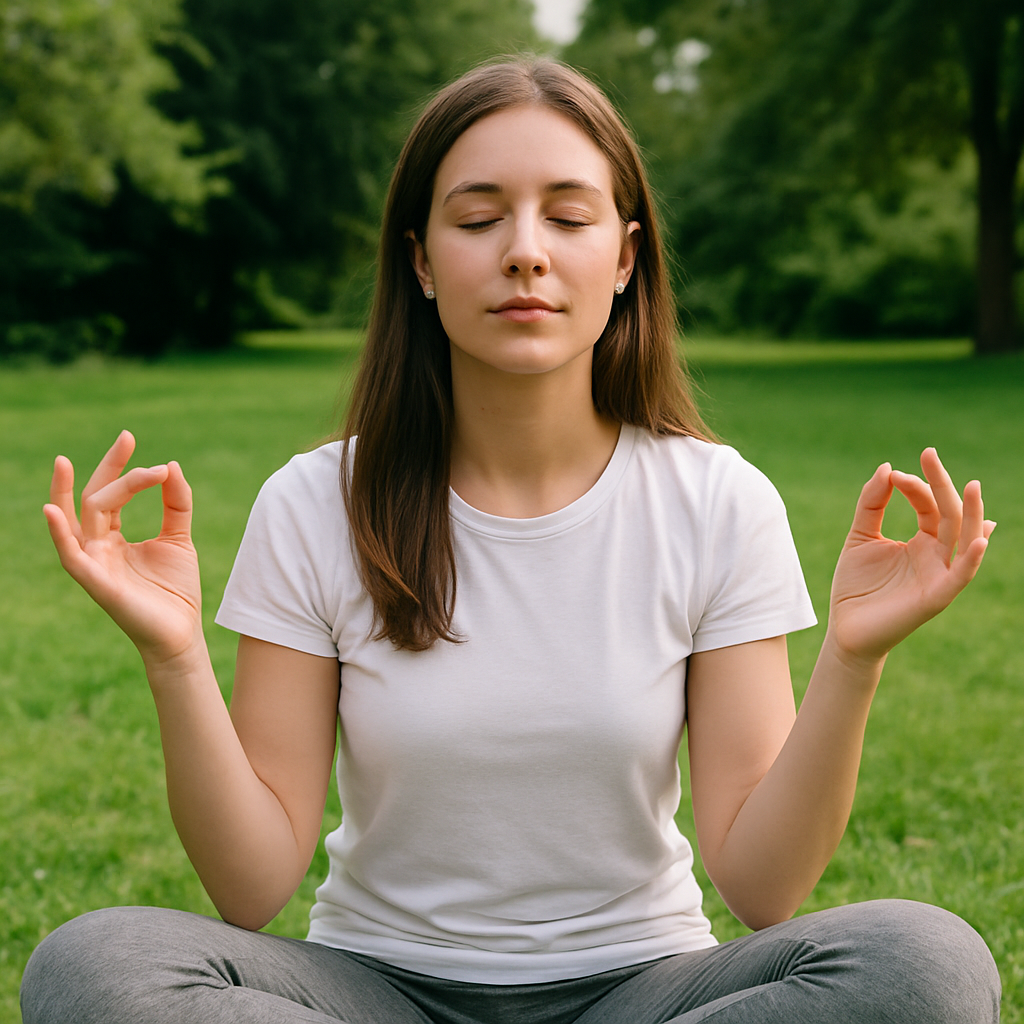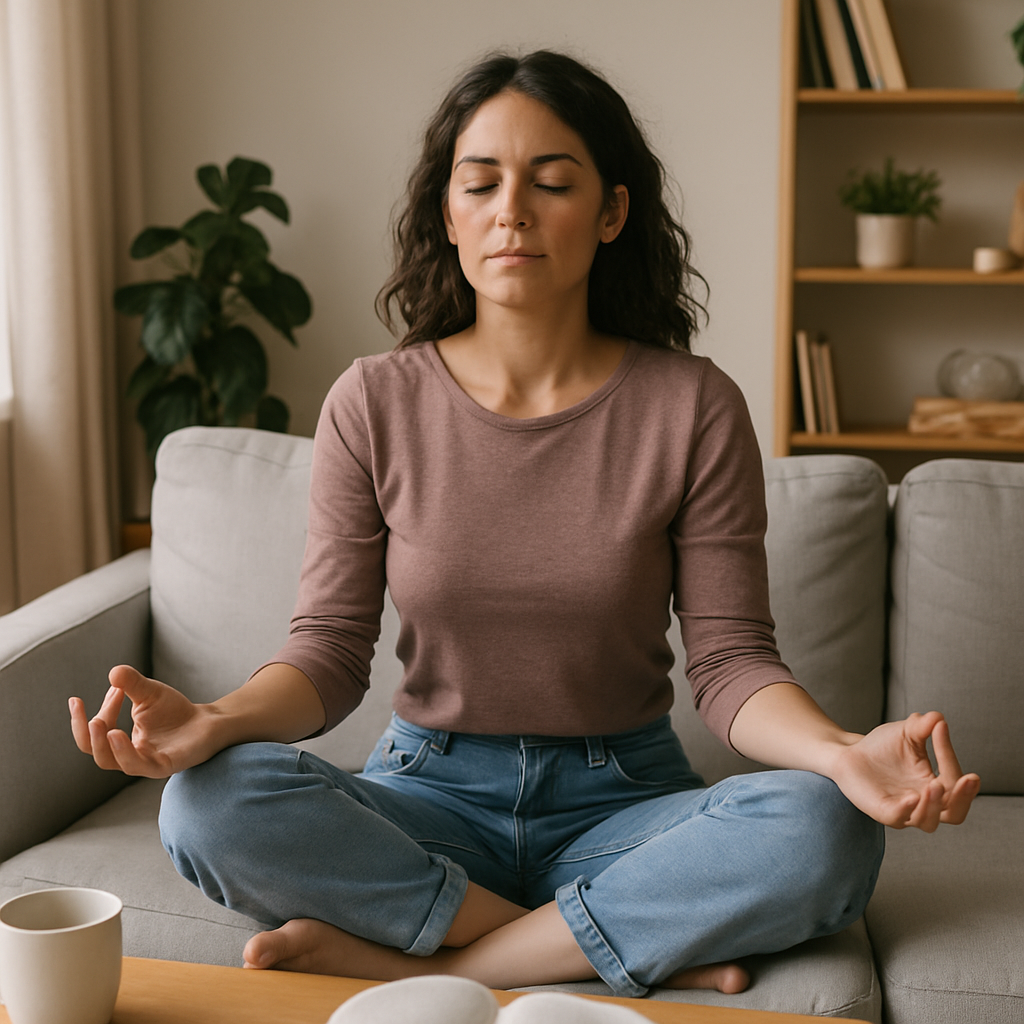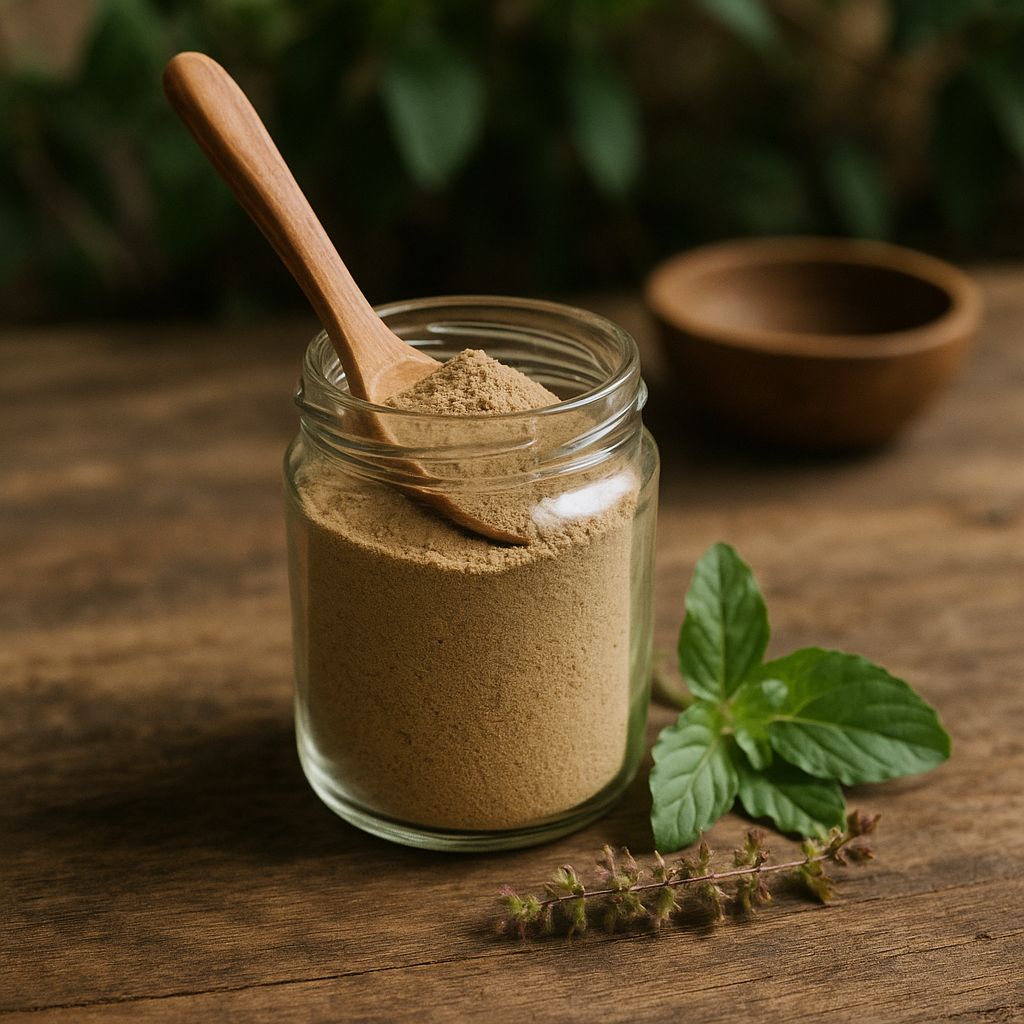Ask Ayurvedic doctor a question and get a consultation online on the problem of your concern in a free or paid mode. More than 2,000 experienced doctors work and wait for your questions on our site and help users to solve their health problems every day.
How to Reduce Stress: Ayurvedic Remedies, Practices, and Natural Relief

Stress is no longer something that comes and goes; it's here to stay, and it often comes without being invited. Stress and anxiety have become a big part of our daily lives, whether it's because of deadlines, emotional problems, or too much information. This guide will show you time-tested Ayurvedic practices and holistic techniques that will help you reduce stress in a way that is effective, gentle, and long-lasting. We'll talk about how to lower stress levels in a natural way and keep them that way for a long time, starting right at home. You'll also learn how ancient remedies like Ayurvedic churna can help you relax and get back to your normal self.

What Ayurveda Says About Stress
Ayurveda doesn't just see stress as a mental or emotional problem; it also sees it as a lack of balance in the body, mind, and spirit. Ayurveda looks at stress through the three doshas (Vata, Pitta, and Kapha) and how they affect your daily habits, environment, and thoughts. Western medicine, on the other hand, tends to see stress as a mental problem.
Vata and Rajasic Imbalance as Root Causes
One of the primary root causes of stress in Ayurvedic philosophy is a Vata imbalance. Vata governs movement—of breath, thoughts, and bodily functions. When aggravated, it leads to restlessness, overthinking, insomnia, and fear. When you add a Rajasic lifestyle (which includes too much stimulation, too much multitasking, loud noise, and fast food), your nervous system gets overwhelmed.
Grounding your Vata and reducing Rajasic tendencies can often be the first steps in using Ayurveda to reduce stress and anxiety. This involves slowing down, building calm, and providing your nervous system with routine, warmth, and awareness.
How Stress Affects Prana, Digestion, and Sleep
Ayurveda also teaches that chronic stress disturbs Prana—our vital life force. When Prana is compromised, digestion (Agni) weakens, leading to toxin buildup (Ama), poor nutrient absorption, and imbalances in the gut-brain axis. You might notice disturbed sleep, mood swings, or a sense of emotional disconnection. Addressing stress holistically, therefore, requires supporting all three pillars: Prana (life energy), Agni (digestive fire), and Nidra (restful sleep).

Don't wait or self medicate. Start chat with Doctor NOW
Signs and Symptoms of Stress and Anxiety
Understanding how stress manifests in your body and mind is the first step in healing. While we often recognize stress by how it makes us feel mentally, Ayurveda invites us to observe deeper and more subtle signals as well.
Physical, Emotional, and Mental Manifestations
Some of the most common signs include:
-
Racing thoughts or inability to concentrate
-
Digestive disturbances such as bloating or irregular appetite
-
Muscle tension, especially in the neck and shoulders
-
Feelings of overwhelm, worry, or irritability
-
Disrupted sleep or vivid, disturbing dreams
These are classic signs that your system is overloaded and in need of balance.
Subtle Signs of Dosha Aggravation During Stress
Each dosha responds differently under stress. For instance:
-
Vata stress: anxiety, insomnia, forgetfulness, dry skin
-
Pitta stress: anger, hyper-competitiveness, ulcers, skin rashes
-
Kapha stress: lethargy, depression, emotional withdrawal
Recognizing which dosha is aggravated allows you to tailor your approach to reduce stress more effectively and naturally.

Natural and Ayurvedic Ways to Reduce Stress
While modern medicine often treats symptoms of stress with medication, Ayurveda offers a holistic and sustainable approach. These methods not only reduce stress naturally, but also help in preventing future imbalances. Whether you’re looking for the best ways to reduce stress or simple ways to reduce stress at home, the following practices can be both calming and transformative.
Reduce Stress at Home with Daily Rituals and Breathwork
Your home can become a sanctuary of healing if you allow it. Incorporating Ayurvedic daily rituals, or Dinacharya, can help regulate your circadian rhythm, calm your nervous system, and foster emotional stability.
Start your day with:
-
Oil pulling to cleanse and ground the senses
-
Abhyanga (self-massage) with warm sesame oil to soothe Vata
-
Nasya (nasal oil drops) to clear mental fog
-
Gentle breathwork (Pranayama) such as Nadi Shodhana (alternate nostril breathing) to balance Prana and calm anxiety
Creating morning and evening routines can significantly reduce stress and anxiety by helping you feel more anchored and in control.
Herbs and Adaptogens: Ayurvedic Churna to Reduce Stress
One of the most potent ways to reduce stress naturally is through Ayurvedic herbs and churnas (powdered herbal blends). These have been used for centuries to nourish the mind and restore nervous system equilibrium.
Top Ayurvedic churnas to reduce stress include:
-
Ashwagandha churna: A powerful adaptogen that reduces cortisol, enhances resilience, and promotes restful sleep.
-
Brahmi churna: Supports mental clarity, memory, and soothes the mind.
-
Jatamansi churna: A lesser-known herb that helps deeply calm the nervous system, ideal for high Vata conditions.
-
Shankhpushpi churna: Used to ease tension, promote better cognition, and support emotional balance.
These natural remedies help reduce stress and anxiety without the side effects associated with pharmaceuticals. Consult an Ayurvedic practitioner to personalize your herbal protocol.
Diet, Movement, and Sleep Practices to Naturally Reduce Stress
What you eat, how you move, and how well you rest are all crucial factors in stress management. Ayurveda recommends simple yet powerful dietary and lifestyle habits to naturally reduce stress.
Dietary tips:
-
Favor warm, moist, grounding foods like soups, stews, and cooked grains.
-
Avoid excess caffeine, sugar, and processed foods, which increase Vata and Pitta.
-
Use calming spices such as cardamom, nutmeg, fennel, and turmeric.
Movement and exercise:
-
Engage in slow, mindful movement like walking, Tai Chi, or restorative yoga.
-
Avoid overexertion, especially during periods of high stress.
Sleep hygiene:
-
Go to bed before 10 PM, when Pitta energy begins to rise.
-
Establish a wind-down ritual with herbal teas, warm baths, or calming music.
-
Keep digital devices out of the bedroom to reduce overstimulation.
Making small, consistent changes in your daily routine can have a profound impact on your ability to reduce stress at home and feel more balanced overall.

Long-Term Stress-Reduction Lifestyle Techniques
While temporary relief is beneficial, long-term resilience building is necessary for sustained wellbeing. Ayurveda emphasises prevention over cure, and these lifestyle choices can support the development of a clear, focused mind. These are some of the best ways to reduce stress and cultivate lasting balance in our modern, overstimulated world.
Building Mental Resilience with Dinacharya (Daily Routine)
Having a daily routine, or Dinacharya, is one of the most effective ways to reduce stress naturally. It supports your internal biological clock and stabilizes your doshas, especially Vata, which is easily disturbed by irregularity.
Important steps to take include:
-
Getting up at sunrise to align with the natural cycles
-
Scraping your tongue to get rid of toxins and start the day right
-
Warm water with triphala or lemon to help with digestion
-
Creating daily goals to maintain focus and mindfulness
Your nervous system becomes more resilient and grounded as your daily routine becomes more regular. This reduces tension and anxiety before they become severe.
Creating a Stress-Free Environment and Attitude
Your mental state is highly influenced by your surroundings. Therefore, try to make your home feel secure, loving and calm, no matter how big or small your house is. This is a great way to reduce your stress levels at home.
Try the following:
-
Consider decluttering your home and removing things you don't need. It will help reduce overstimulation.
-
Consider using soft and light colors like yellows, pinks and greys. Soft lighting and soothing smell can also help you reduce stress. You can also burn incense sticks of sandalwood or lavender.
-
It is also crucial to set up a dedicated calm zone in your house to rewind from a hectic day. You can add some cushions, books, and soft music in that area and can also use it for meditation.
-
It is very important to practice gratitude journaling as it helps shift your mindset toward abundance. This way, you won't feel much anxious.
Making these small environmental changes can greatly shift your mental state and can act as powerful cues for your mind to relax.
Using Meditation, Mantra, and Journaling
Ayurveda is an ancient practice that encourages a person to connect their mind, body and spirit. Therefore, you can also consider adding meditation, sound healing therapy and writing to reduce your stress levels and make yourself happier.
-
Meditation calms the mind, reduces cortisol levels, and rewires your brain for clarity and presence. Start with just 5–10 minutes a day.
-
Chanting mantra (like “Om Shanti” or “So Hum”) is a great way to soothe your nervous system and quiet your mind. These mantras have sound vibrations that create a sense of calmness in your body and your mind also heals.
-
Journaling is one of the best ways to reduce your stress levels as it helps externalize your thoughts, track emotional patterns, and resolve your internal thought process.
All the above-mentioned ways can help reduce your stress levels naturally and improve self-awareness. You just need to be consistent with these practices and you will easily be able to shift your baseline from reactive to reflective.
Conclusion
Stress is a regular part of our lives and it is inevitable. However, you can always find easy and simple ways to manage it and not let it affect you. By understanding how Ayurveda views stress and following Ayurvedic tips, you can easily shift your focus. From adjusting your diet and daily routine to adding breathing exercises, herbal remedies, and mindful rituals, there are a lot of ways to reduce stress at home that are natural, effective, and sustainable.
Whether you start with a simple cup of herbal tea, an Ayurvedic churna to reduce stress, or a morning oil massage, the path back to calm is within reach. The best part? You don’t need to escape to a retreat center—you can begin exactly where you are, with what you have.
Take the first step today: light a candle, take a few deep breaths, and commit to one small ritual that speaks to your soul.
FAQs
Why can't I handle stress?
The inability to handle stress comes from a combination of imbalanced doshas, an improper or no routine, and overstimulation. It is important to build a daily lifestyle routine, add self-care habits, eat a balanced diet and have a proper sleep schedule to manage your stress the right way.
Does chewing gum calm you down?
No, chewing gum cannot calm you down, though it can offer a temporary relief as it mimics a rhythmic movement. This soothes your nervous system. Instead of having a chewing gum, consider adding tried and tested Ayurvedic practices like deep breathing exercises, sipping herbal teas or pranayama to calm your mind.
Which dosha is most commonly imbalanced during chronic stress?
Vata dosha is the most susceptible to chronic stress. Symptoms include anxiety, insomnia, dry skin, and racing thoughts. Grounding practices and warming foods are essential to bring Vata back into balance.

